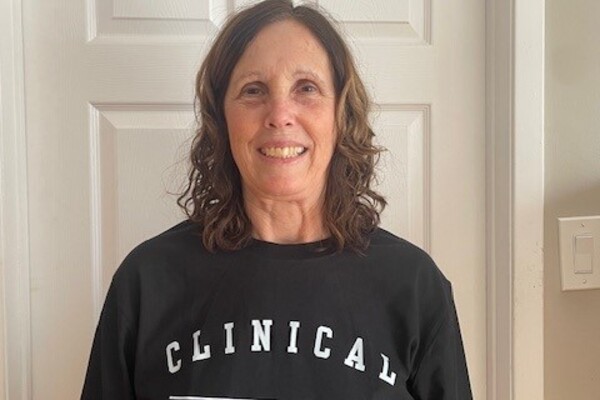Preceptor Spotlight: Anuja Panditrao

Anuja Panditrao is one of a growing number of occupational therapists who work in family health teams. For the past several years, she has offered her time to supervise occupational therapy students and show them how their clinical and leadership skills add value to family health teams.
Can you tell us about your position and your role as an occupational therapist?
I have been working as an occupational therapist at Queen Square Family Health Team since 2016. In this role, I provide assessments and interventions for falls prevention, return to work, cognitive difficulties, activities of daily living, driving, and support our Seniors Wellness Program team in conducting Comprehensive Geriatric Assessments. Family health team occupational therapists are generalists who address the needs of a wide population with the focus on preventative care and chronic disease management.
In 2022, I took on the role of Manager of Clinical Programs while continuing to provide client care as an occupational therapist. As manager, I oversee a number of services and programs and support a team of ten clinicians. I draw a lot from my occupational therapy skills and competencies in this role – building rapport with clients, understanding clients' needs, and being a partner in co creating, and enabling clients. These are also great transferable skills when supporting a team!
Can you tell us about your role in supervising occupational therapy students?
For the last couple of years, myself and another occupational therapist, Marina, have shared the responsibility of supervising an occupational therapy student during their fieldwork placement, exposing them to the role of occupational therapists in family health teams. Students also have a chance to shadow me in my administrative role where they get to see how occupational therapists can apply their competencies and skills to support decision making and policy development and improve the experiences of health care providers and clients.
How has the family health team you work with received the students?
A part of learning about the occupational therapist’s role in family health teams is also understanding how primary care fits into the larger health system.
During their placements, our students get to shadow members of our interprofessional team to see how other health care professionals work collaboratively with clients. Students get the opportunity to not only learn the occupational therapist’s role in our team, but also educate others on the occupational therapy profession. Students get to present cases at clinical rounds and share how occupational therapists can support a client; they get to ask questions and problem solve together with the other team members when developing care plans. They learn that occupational therapists can act as strong resource support and system navigators for not only to their clients but also for other team members.
What aspects of being a preceptor do you find the most gratifying?
What I find most gratifying is when a student tells me at the end of their placement that they have had a unique and fulfilling experience working in primary care. The ultimate compliment is when students say, “I would love to work in primary care,” because we need more occupational therapists in this setting.
I enjoy watching students develop their confidence and take on more responsibilities over the course of their placement. Our very first student helped co-facilitate a program, Learning the Ropes®, for people living with mild cognitive impairment. It was wonderful to watch her use her creativity and personal story to deliver the information in a unique way. It was lovely to see the rapport she built with participants and after she left, clients and participants would often ask about her and how she is doing.
Why do you think it’s important for preceptors to offer their time to help train future occupational therapists?
Primary care occupational therapists, we are small in number, but mighty! With where health care is heading, there is a growing need for team-based interdisciplinary care, and I see a larger role for occupational therapists in primary health teams – we are natural collaborators, problem solvers, change agents and client centered co-creators.
It is important to me to volunteer my time as a preceptor to inspire future occupational therapists to see the importance of this role, and to show them how occupational therapists can be advocates for our profession and leaders in health care.



